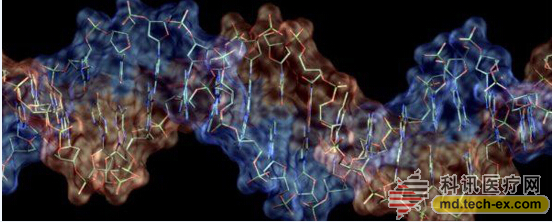Have you seen such a USB flash drive? Scientists store information in test tubes
Release date: 2015-12-29

Engineer Robert Grass said that although we believe that information will never disappear, it is actually very fragile. Over time, physical carriers such as hard drives and books used to store information will gradually become useless. In an interview with the BBC, the engineer said he was looking for a way to keep information stable for hundreds of years, the secret of which is DNA (which we often call DNA).
A study conducted in 2012 showed that one can store a megabyte (ie 1MB) of information in DNA and then re-read it from the DNA, which means a bit of DNA as a USB stick. DNA has its own language and is written in a nucleotide sequence. We can think of it as a language like binary, because the language of DNA can also break down information into 1s and 0s.
It is worth mentioning that the advantage of DNA is that it can store a large amount of information in a very small space. In theory, one gram of DNA in the human body can hold a message size of 455 exabytes (ie 1 EB, 2 60th power bytes). In other words, one gram of DNA is enough to hold all the data and information from Google, Facebook, and other major technology companies, with extra space for backup.
However, one of the problems with the research we mentioned above is that researchers have not studied the stability of information. According to Robert Grass, stability will become a key factor in the long-term storage of information over time.
Now, Robert Grass and his partner Reinhard Heckel from the Swiss Federal Institute of Technology in Zurich have proposed a solution. They believe that this solution can not only store all the data information of Facebook and Wikipedia in a small test tube, but also extend the storage time to permanent.
According to foreign media ScienceAlert, Robert Grass has drawn inspiration from ancient fossils because the DNA stored in animal fossils is very stable (if you don't believe, you can think about Jurassic Park). Although DNA decomposes and decays after reacting with water and oxygen, if the synthesized DNA is placed in a stable glass test tube, DNA decomposition can be avoided.
Unfortunately, no one preservation method is perfect, and Reinhard Heckel needs to come forward. The researcher came up with the idea of ​​adding duplicate information to the DNA, so that even if people lose some information while storing the information, they can be recovered.
The two researchers placed their own capsules in a low-temperature storage environment that simulated between 50 and 1 million years. The results showed that they did. Robert Grass said that the next question they need to think about is what should be stored.
Source: Weifeng Net
Isoprene Gasket For Caps,Gasket for Medical Bag,Isoprene Rubber Gasket
SUZHOU CRH PHARMACEUTICAL TECHNOLOGY CO.,LTD , https://www.crh-health.com